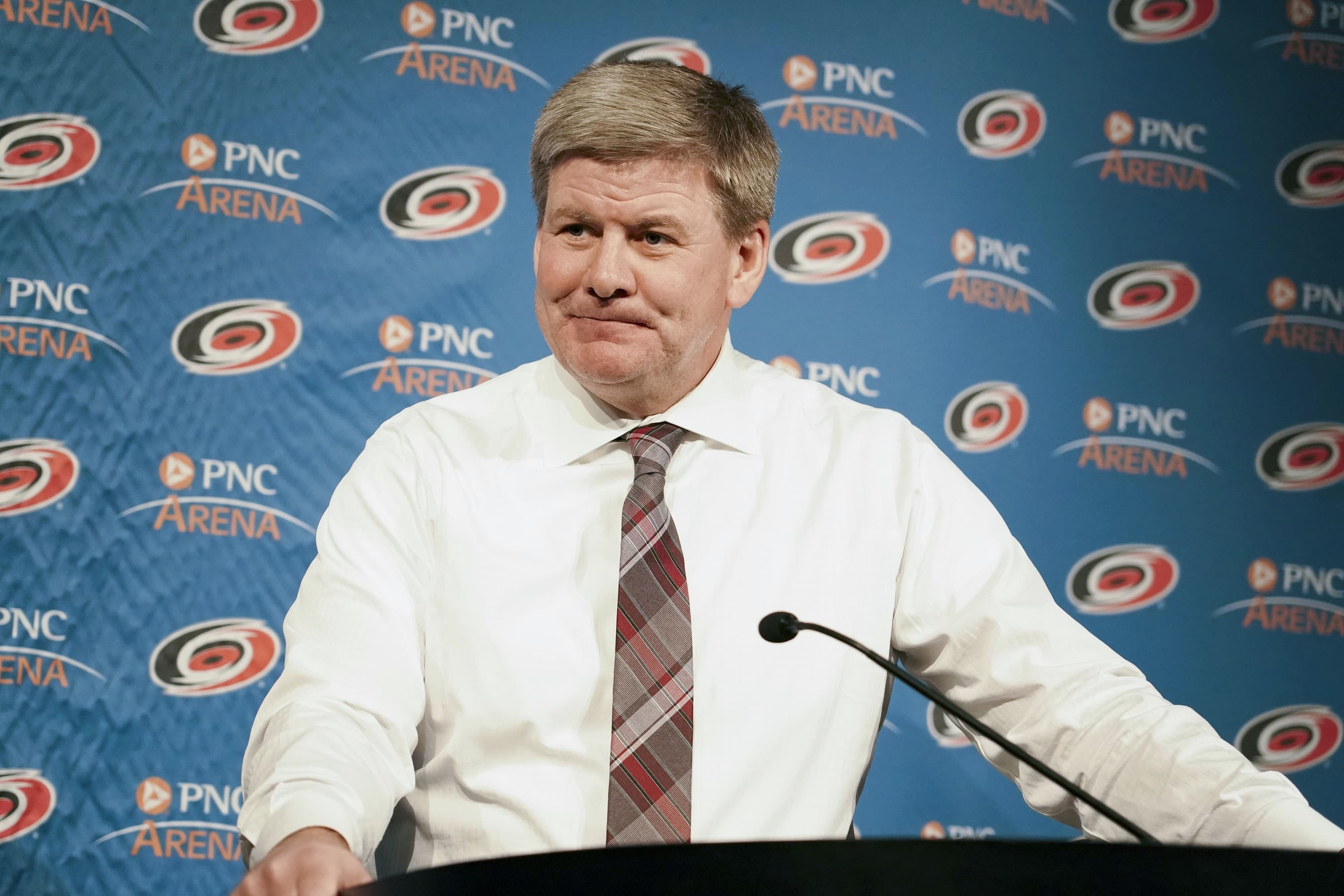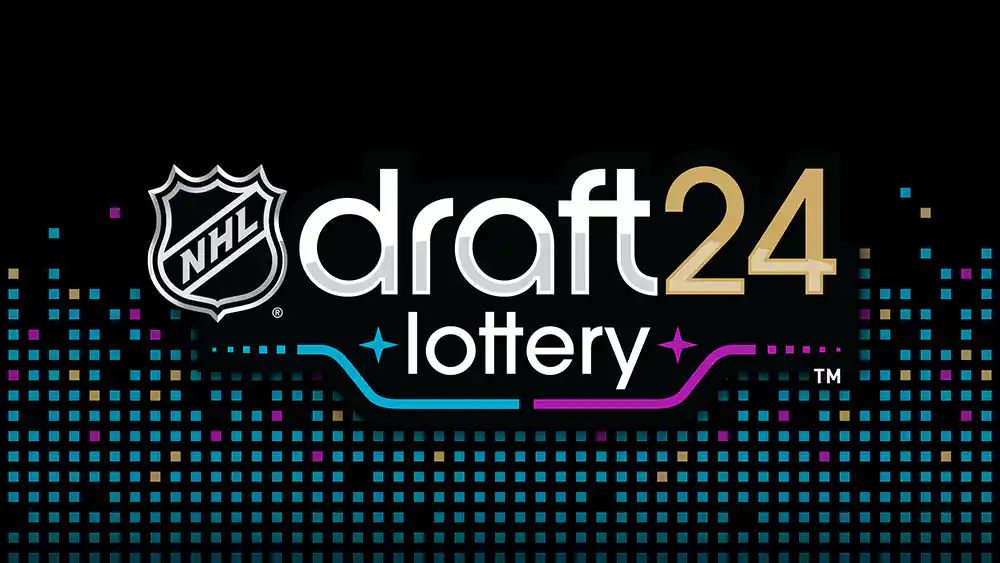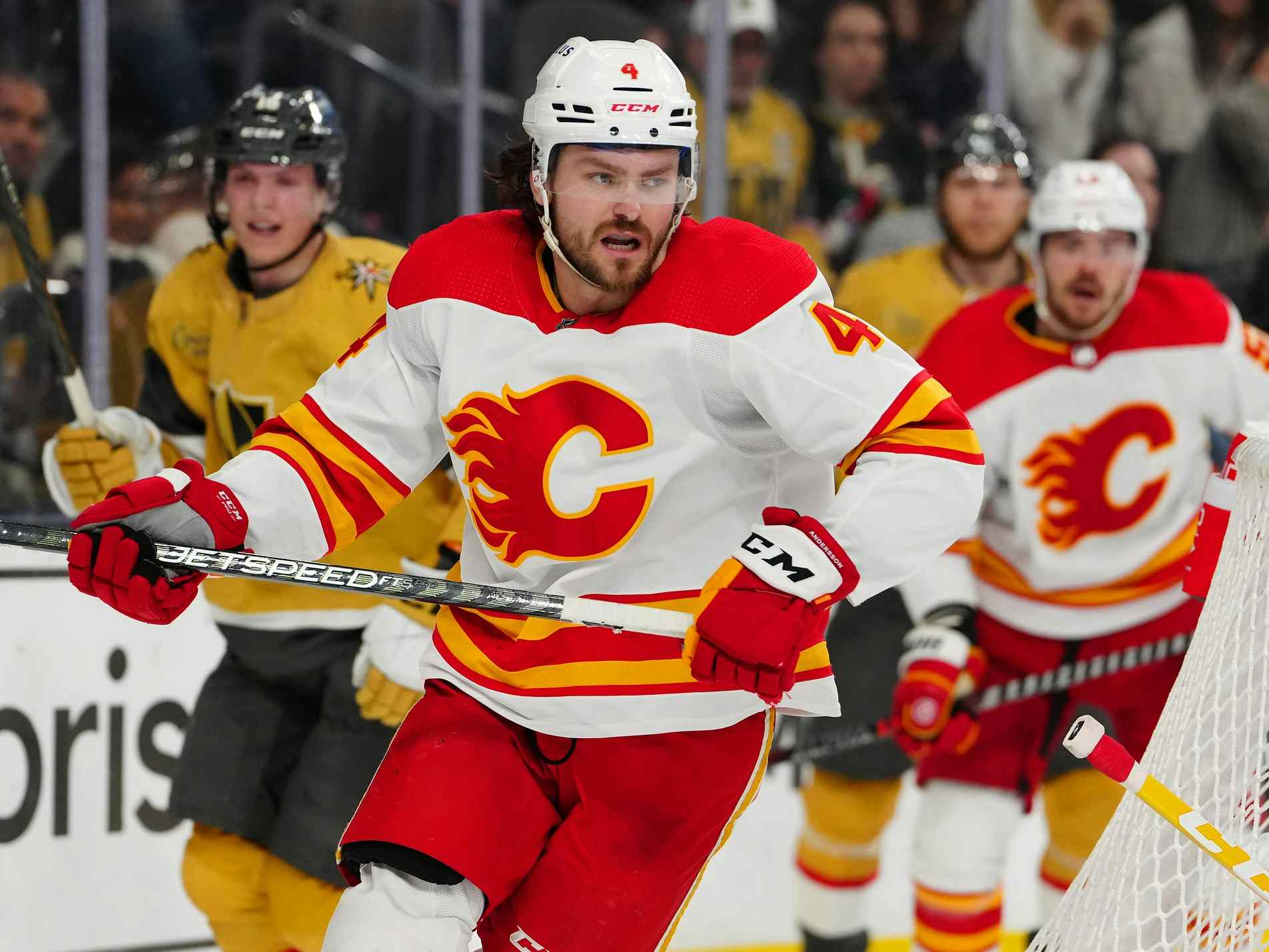Would Bill Peters be an upgrade over Glen Gulutzan?

By Ryan Pike
6 years agoFrom the very moment that it became evident that the Calgary Flames weren’t going to make the 2018 Stanley Cup playoffs, fans and pundits alike have been sizing up the coaching market looking for a replacement for now-former Flames bench boss Glen Gulutzan. It’s only natural, given the chasm between the team’s expectations and performance over the past 82 games.
While the anticipated “Black Monday” of coaching firings didn’t materialize across the league, there are likely several teams considering their options as they begin their offseasons.
One interesting potential option, now that the Flames have cut ties with Gulutzan, is Carolina Hurricanes head coach Bill Peters. But would Peters necessarily solve the Flames’ current problems?
Availability and cost
Peters reportedly has a window in his contract where he can explore other options and potentially opt out of his 2018-19 contract. Teams are said to be sniffing around him.
For reference, Gulutzan is making around $800,000 and is also under contract for 2018-19. If the Flames decided to make a swap, they’d still be on the hook for Gulutzan’s final year and would end up tripling their head coaching costs – and that’s if Peters comes to town on the same salary he has in Carolina. Most likely he’d be fetching closer to $2 million to coach here, which would more than triple next season’s coaching costs.
Comparing experiences
Peters is 53 and is originally from Three Hills, Alberta. His bike was run over when he was 15, an incident that broke his knee and ended his serious pro hockey aspirations. He played a little bit in the AJHL, college and one game as an emergency replacement in the Central Hockey League, but otherwise spent his time running hockey schools and doing managerial work.
He’s coached continuously since 1996, spending time as an assistant and eventually gaining head coaching experience in four different levels: the University of Lethbridge (CIS, 2002-05), Spokane (WHL, 2005-08), Rockford (AHL, 2008-11) and Carolina (2014-18). He won a Memorial Cup in 2008 with Spokane.
Peters is seven years older than Gulutzan and is from small town Alberta rather than small town Saskatchewan. He went to college and got his degree, then worked his way up through the coaching ranks. He has less playing experience than Gulutzan and about equal head coaching, but has slightly more coaching experience if you factor in time as an assistant coach. He’s less gung-ho about analytics than Gulutzan, but is said to be much more blunt and a bit less of a “player’s coach.”
He’s very much a chip off the Mike Babcock block, which makes sense given he had him as a coach in college and then served as an assistant under him in Detroit.
Team progression
Peters’ entire NHL head coaching career spans four seasons in Carolina where the Hurricanes missed the playoffs every single season. That said, the team maintained pretty solid possession numbers for his entire tenure. His first and last seasons were utterly undone by bad goaltending.
| Season | CF% | PP% | PK% | S% | Sv% | Pts% |
| 2014-15 | 52.4 | 18.8 | 84.7 | 6.2 | 90.9 | .433 |
| 2015-16 | 51.5 | 16.8 | 84.3 | 6.9 | 91.5 | .524 |
| 2016-17 | 51.3 | 17.7 | 84.2 | 7.3 | 91.3 | .530 |
| 2017-18 | 54.5 | 18.4 | 77.5 | 7.0 | 90.9 | .506 |
While Carolina couldn’t shore up their goaltending during his four years there, they did a pretty solid job developing young defensemen. Players that came up under Peters and have seemed to settle in nicely include Noah Hanifin, Jaccob Slavin, Brett Pesce and Haydn Fleury. The development of young forwards wasn’t nearly as successful during that span, unfortunately.
Coaching style
Talking to colleagues who cover the Hurricanes, the emphasis under Peters has been structure. He’s all about positioning and anticipation. Sports Illustrated’s Alex Prewitt profiled Peters a year ago, and their chat was illuminating in terms of how he views the game. Responding to praise about his young team’s discipline, Peters offered an explanation of how a team stays out of the box.
We’ve got a real mature, young group. We skate good, so we can establish and maintain body position. And if you lose body position instead of getting lazy and putting your stick in, drop your head and go to work, make up space. That’s why the game’s gotten so fast, because everyone can skate and you lose body position and have to work twice as hard to get it back. Better off knowing what you’re doing and being in the right spot.
In another chat, this one at The Coaches Site (from their annual conference), Peters discussed the importance of faceoffs, winning 50/50 battles and situational awareness. In short? Know where you are, know what your options are, and know how to react quickly to what’s happening.
Failed to load video.
The criticisms I heard about Peters were that he’s a bit of a hard-ass and he shuffles lines a lot. Given that the criticisms often heard about Gulutzan were him being perhaps too much of a “player’s coach” and not shuffling lines much, this might be a nice change of pace.
The Hurricanes didn’t have a ton of success under Peters, particularly this season, but you could potentially pin some of that on (a) rough goaltending and (b) a really young defensive group learning on the job. Given the Flames’ challenges exiting their zone and creating off the rush, I could see a structured system from Peters being quite appealing – particularly given how developed the team’s blueline group is.
Would he be an upgrade?
If the Flames management group doesn’t make wholesale changes to the team’s composition, it’s easy to see the style of game Peters seems to want to play translating well. Defensive zone structure was one of the big bugaboos of the 2017-18 Flames and once the team wasn’t able to cement good habits early on, things just snowballed from there. Emphasizing structure and removing turnovers inside the blueline would go a long way towards getting the Flames where they need to be.
On the other hand, Peters’ teams have had tons of puck possession during his entire tenure in Carolina and haven’t scored a ton. They struggled to score almost to the same extent the Flames struggled to score, though you could make an argument that Carolina didn’t have nearly the young firepower that the Flames do. The big question is whether Carolina’s offensive troubles were talent-related or systemic, and it’s hard to delineate the two.
When I argued that the coaching staff wasn’t going to be left intact, I made one big declaration:
They have two years to maximize the output from this core group before big contracts expire and they have to deal with the Seattle expansion draft.
Is a hard-ass head coach with an emphasis on defensive structure and puck possession the right guy to get the absolute most out of this team between now and 2020? Based on the evidence I’ve found (and the people I’ve spoken with) he might not be the perfect person for the job, but he’s probably a better fit for what this group needs moving forward than Gulutzan was.
Recent articles from Ryan Pike




